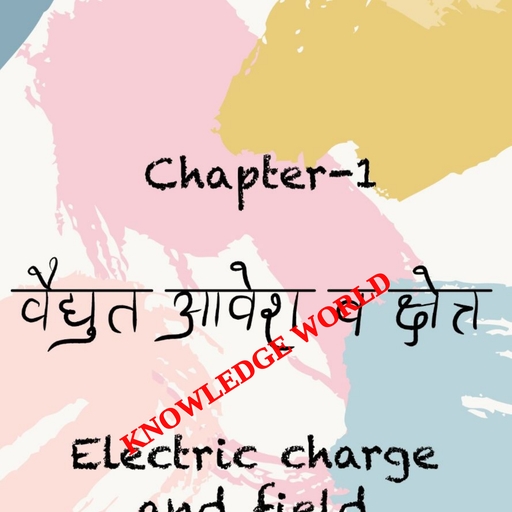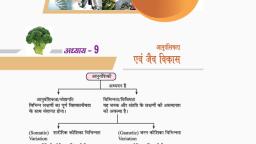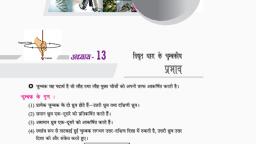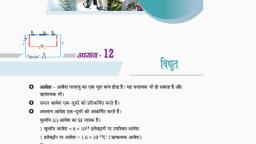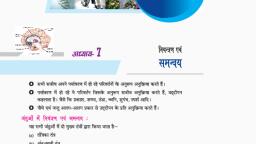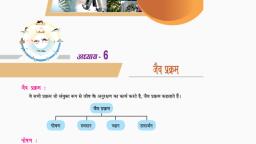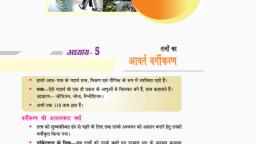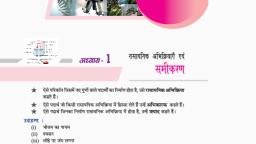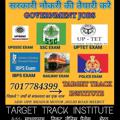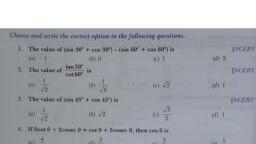Question 1 :
If $3\sin\theta + 5 \cos\theta =5$, then the value of $5\sin\theta -3 \cos\theta $ are 
Question 2 :
Choose and write the correct alternative.<br>If $3 \sin \theta = 4 \cos \theta$ then $\cot \theta = ?$<br>
Question 3 :
IF A+B+C=$ \displaystyle 180^{\circ}  $ ,then $  tan A+tanB+tanC $ is equal to
Question 4 :
Given $tan \theta = 1$, which of the following is not equal to tan $\theta$?
Question 6 :
Given $\cos \theta = \dfrac{\sqrt3}{2}$, which of the following are the possible values of  $\sin 2 \theta$?
Question 7 :
Simplest form of $\displaystyle \dfrac{1}{\sqrt{2 + \sqrt{2 + \sqrt{2 + 2 cos 4x}}}}$ is
Question 8 :
Value of ${ cos }^{ 2 }{ 135 }^{ \circ  }$
Question 9 :
$\tan \theta$ increases as $\theta$ increases.<br/>If true then enter $1$ and if false then enter $0$.<br/>
Question 12 :
If $sin({ 90 }^{ 0 }-\theta )=\dfrac { 3 }{ 7 } $, then $cos\theta $
Question 17 :
The given expression is $\displaystyle \sin { \theta  } \cos { \left( { 90 }^{ o }-\theta  \right)  } +\cos { \theta  } \sin { \left( { 90 }^{ o }-\theta  \right)  } +4 $ equal to :<br/>
Question 19 :
If $\displaystyle x=y\sin \theta \cos \phi ,y=\gamma \sin \theta \sin \phi ,z=\gamma \cos \theta $. Eliminate  $\displaystyle \theta $ and  $\displaystyle \phi $
Question 20 :
Solve:$\displaystyle \sin ^{4}\theta +2\cos ^{2}\theta \left ( 1-\frac{1}{\sec ^{2}\theta } \right )+\cos ^{4}\theta $
Question 21 :
If$\displaystyle \cot A=\frac{12}{5}$ then the value of$\displaystyle \left ( \sin A+\cos A \right )$ $\displaystyle \times cosec$ $\displaystyle A$ is
Question 22 :
If $sec\theta -tan\theta =\dfrac{a}{b},$ then the value of $tan\theta $ is
Question 23 :
If $\displaystyle 5\tan \theta =4$, then find the value of $\displaystyle \frac{5\sin \theta -3\cos \theta }{5\sin \theta +2\cos \theta }$. 
Question 24 :
Choose the correct option. Justify your choice.<br/>$\displaystyle 9{ \sec }^{ 2 }A-9{ \tan }^{ 2 }A=$<br/>
Question 27 :
If $\tan \theta = \dfrac {4}{3}$ then $\cos \theta$ will be
Question 28 :
The value of $[\dfrac{\tan 30^{o}.\sin 60^{o}.\csc 30^{o}}{\sec 0^{o}.\cot 60^{o}.\cos 30^{o}}]^{4}$ is equal to
Question 29 :
Which of the following is equal to $\sin x \sec x$?
Question 30 :
The expression$ \displaystyle \left (\tan \Theta +sec\Theta \right )^{2} $ is equal to
Question 32 :
find whether ${ \left( \sin { \theta  } +co\sec { \theta  }  \right)  }^{ 2 }+{ \left( \cos { \theta  } +\sec { \theta  }  \right)  }^{ 2 }=7+\tan ^{ 2 }{ \theta  } +\cos ^{ 2 }{ \theta  } $ is true or false.
Question 33 :
As value of $x$ increases from $0$ to $\cfrac{\pi}{2}$, the value of $\cos {x}$:
Question 34 :
If $\displaystyle  \cos A+\cos ^2A=1$ then the value of $\displaystyle  \sin ^{2}A+\sin ^{4}A$ is
Question 35 :
If $\theta$ increases from $0^0$ to $90^o$, then the value of $\cos\theta$: <br/>
Question 36 :
The value of $\sqrt { 3 } \sin { x } +\cos { x } $ is max. when $x$ is equal to
Question 37 :
Maximum value of the expression $\begin{vmatrix} 1+{\sin}^{2}x & {\cos}^{2}x & 4\sin2x \\ {\sin}^{2}x & 1+{\cos}^{2}x & 4\sin2x \\ {\sin}^{2}x & {\cos}^{2}x & 1+4\sin2x \end{vmatrix}=$
Question 38 :
If $ \alpha \epsilon \left[ \frac { \pi  }{ 2 } ,\pi  \right] $ then the value of $\sqrt { 1+sin\alpha  } -\sqrt { 1-sin\alpha  } $ is equal to
Question 39 :
If $\displaystyle \tan { \theta  } =\frac { 1 }{ 2 } $ and $\displaystyle \tan { \phi  } =\frac { 1 }{ 3 } $, then the value of $\displaystyle \theta +\phi $ is:
Question 41 :
The given relation is $(1 + \tan a + \cos a)(\sin a - \cos a )= 2\sin a\tan a - cat\,a\cos a$
Question 43 :
If $\sin \theta + \cos\theta = 1$, then what is the value of $\sin\theta \cos\theta$?
Question 48 :
Find the value of $ \displaystyle  \theta , cos\theta  \sqrt{\sec ^{2}\theta -1}     = 0$
Question 49 :
IF $ \displaystyle \tan \theta =\sqrt{2}    $ , then the value of $ \displaystyle \theta     $ is 
Question 50 :
Select and wire the correct answer from the given alternatives. <br/>$\cos \left(\dfrac {3\pi}{2}+\theta \right)=$ ____
Question 51 :
The maximum value of $ \cos \alpha_1 \cdot \cos \alpha_2 \cdot \cos \alpha_3 ... \cos \alpha_n $ under the restriction $ 0 \le \alpha_1 , \alpha_2 , ... , \alpha_n \le \pi / 2 $ and $ \cot \alpha_1 = \cot \alpha_2 = .... \cot \alpha_n = 1 $ is :
Question 52 :
If $7 \theta $ and $2 \theta$ are measure of acute angles such that  sin $7\theta$=cos $2 \theta$, then $2sin 3\theta-\sqrt3$ tan $3\theta$ is ________.
Question 53 :
If $\sin \theta \, + \, \cos \theta \, = \, p, \, \sin^{3} \, \theta \, + \, \cos^{3} \, \theta \, = \, q$, then $ p(p^{2} \, - \, 3) \, = \, $  
Question 55 :
Let$\theta \in \left( {0,{\pi \over 4}} \right)$ and${t_1} = {\left( {\tan \theta } \right)^{\tan \theta }}$,${t_2} = {\left( {\tan \theta } \right)^{\cot \theta }}$,${t_3} = {\left( {\cot \theta } \right)^{\tan \theta }}$ then${t_4} = {\left( {\cot \theta } \right)^{\cot \theta }}$, then
Question 57 :
If$\displaystyle \tan \theta +\sin \theta =m$ and$\displaystyle \tan \theta -\sin \theta =n$ then$\displaystyle m^{2}-n^{2}$ is equal to
Question 58 :
If $\displaystyle 7\sin ^{2}\theta +3\cos ^{2}\theta =4$ then the value of$\displaystyle \tan \theta $ is
Question 60 :
$\tan 68^{\circ} + \sec 68^{\circ}$, when expressed in terms of angles between $0^{\circ}$ and $45^{\circ}$, becomes
Question 61 :
The value of $\sin 12^{\circ} \sin 48^{\circ} \sin 54^{\circ}$ is equal to.
Question 62 :
The value of $\sec$ $(90^0 - \theta) \sin \theta$ is <br/><br/><br/>
Question 63 :
If $\cos { \theta  } -\sin { \theta  } =\sqrt { 2 } \sin { \theta  }$, then $\cos { \theta  } +\sin { \theta }$ is equal to ?<br/>
Question 65 :
If $\displaystyle \sin \theta +\sin ^{2}\theta = 1,$ then $\displaystyle \cos ^{2}\theta +\cos ^{4}\theta =$
Question 66 :
What is the value of $\displaystyle { \sin }^{ 2 }{ 35 }^{ o }+{ \sin }^{ 2 }{ 55 }^{ o }$ ?
Question 67 :
The value of tan $1^o$ tan $2^o$ tan $3^o$.... tan $89^o$ is.
Question 68 :
If $p=\sec\alpha-\tan\alpha , q = \text{cosec }\alpha+\cot\alpha$. Find $q$ in terms of $ p$.<br/>
Question 69 :
If $A$ and $B$ are complimentary angles, then $\sin A \times \sec B =$
Question 71 :
If  $a  \sec  \theta +b  \tan  \theta =1$ and  $a^{2}  \sec^{2}\theta -b^{2}\tan^{2}\theta $=$5$, than $a^{2}b^{2}+4a^{2}$<br/>
Question 72 :
$\dfrac{2 \sin \theta \, \tan \theta (1 - \tan \theta) + 2 \sin \theta \, \sec^2 \theta}{(1 + \tan \theta)^2}$ =
Question 74 :
If $\sin ^{2}\theta _{1}+\sin ^{2}\theta _{2}+\sin ^{2}\theta _{3}=0$, then which of the following is NOT the possible value of $\cos ^{2}\theta _{1}+\cos ^{2}\theta _{2}+\cos ^{2}\theta _{3}$.<br/>
Question 75 :
In $\triangle ABC$, $\angle B= {90}^{\circ}$, $\sin{C} = \dfrac{3}{5}$, then $\cos{A} =$ ______
Question 76 :
Choose the correct option and justify your choice:<br>$\displaystyle \frac { 1-{ \tan }^{ 2 }{ 45 }^{ \circ } }{ 1+{ \tan }^{ 2 }{ 45 }^{ \circ } } =$<br>
Question 77 :
If $\theta =\dfrac{\pi}{2^n+1}$, then the value of $\cos\theta \cos 2\theta \cos 2^2\theta$------$\cos 2^{n-1}\theta$ is?
Question 78 :
If $\sin { A } =a\cos { B } $ and $\cos { A } =b\sin { B } $, then $\left( { a }^{ 2 }-1 \right) \tan ^{ 2 }{ A } +\left( 1-{ b }^{ 2 } \right) \tan ^{ 2 }{ B } $   is equal to
Question 79 :
<p>Suppose ABC is a triangle with 3 acute angles A, B, and C. The point whose coordinates are (cosB-sinA, sinB-cosA)can be in the-</p>
Question 80 :
If $\displaystyle \sin \left ( A+B \right ) =\frac{\sqrt{3}}{2}$ and $\displaystyle \cot \left ( A-B \right )=1$, then find $A$
Question 81 :
The value of$\displaystyle \frac { \cos { { 75 }^{ o } } }{ \sin { { 15 }^{ o } } } +\frac { \sin { { 12 }^{ o } } }{ \cos { { 78 }^{ o } } } -\frac { \cos { { 18 }^{ o } } }{ \sin { { 72 }^{ o } } }$ is :
Question 83 :
If $\cos A+\cos^{2}A=1  $, then the value of $ \sin^2A+\sin^{4}A$ is:<br/>
Question 84 :
If$\displaystyle 3\tan { \theta } =4$, then$\displaystyle \sin { \theta }$ is :
Question 85 :
If $\sec 4A = cosec (A-20^{\small\circ})$, where $4A$ is an acute angle, find the value of $A$.
Question 87 :
$\tan 1^{\circ} \tan 2^{\circ} \tan 3^{\circ} ... \tan 89^{\circ} = $
Question 88 :
The value of $\displaystyle \frac { 2\cos { { 67 }^{ o } }  }{ \sin { { 23 }^{ o } }  } -\frac { \tan { { 40 }^{ o } }  }{ \cot { { 50 }^{ o } }  } -\sin { { 90 }^{ o } } $ is :
Question 89 :
Value of the expression<br/><br/>$(1- \cos \theta)(1 + \cos \theta) (1+ \cot^2 \theta)$ is<br/>
Question 90 :
If a.cot $\theta+$b.cosec $\theta = $ p and b.cot $\theta\ +\ $a.cosec $\theta =q$, then the value of $p^{2}-q^{2}$ is equal to:<br/>
Question 93 :
The value of $\displaystyle {\text{cosec} }^{ 2 }{ 67 }^{ o }-{ \tan }^{ 2 }{ 23 }^{ o }$ is :
Question 94 :
If A and B are acute angles such that $sin  A=\sin^{2}B,  2 \cos^{2}A=3  \cos^{2}B;$ then
Question 97 :
Which of the following is equivalent to $\dfrac {\tan n\,\, \text{cosec}\, n}{\sin n \,\,\sec n}$?
Question 98 :
If $\sin { \left( \theta +\phi \right) } =n\sin { \left( \theta -\phi \right) } , n\neq 1$, then the value of $\dfrac { \tan { \theta } }{ \tan { \phi } } $ is
Question 99 :
If, $\displaystyle \tan \, 9^o = \frac{x}{y}$ then, value of $\displaystyle \frac{\sec^2\, 81^o}{1+\cot^2\, 81^o}$ is
Question 100 :
Let $\displaystyle a=cosx + cos(x + \frac{2{\pi}}{3}) + cos(x + \frac{4{\pi}}{3})$ and $\displaystyle b=sinx + sin(x + \frac{2{\pi}}{3}) + sin(x + \frac{4{\pi}}{3})$ then which one of the following holds good ?
Question 103 :
If $\displaystyle\frac{\cos^{4}x }{\theta _{1}}+\displaystyle\frac{\sin^{4}x}{\theta _{2}}=\frac{1}{\theta _{1}+\theta _{2}},$ then $\displaystyle\frac{\theta _{2}}{\theta _{1}}$ equals<br>
Question 104 :
If $\text{cosec } \theta = \dfrac {13}{5}$, then $\cos \theta = ......$
Question 106 :
A person on the top of tower observes scooter moving with uniform velocity towards the base of the tower he finds that the angle of depression changes from$\displaystyle 30^{\circ}$ to$\displaystyle 60^{\circ}$ in 18 minutes The Scooter will reach the base of the tower in next
Question 107 :
If $\sin (\alpha+\beta)=1$ and $\sin(\alpha -\beta)=1/2$ where $\alpha, \beta \epsilon [0, \pi /2]$ then
Question 108 :
If $\sin (\alpha+\beta)=1$ and $\sin(\alpha -\beta)=1/2$ where $\alpha, \beta \epsilon [0, \pi /2]$ then
Question 110 :
The function $f:\left [-\displaystyle \frac{1}{2},\:\displaystyle \frac{1}{2} \right ]\rightarrow \left [-\displaystyle \frac{\pi }{2},\:\displaystyle \frac{\pi}{2} \right ] $ defined by$ \sin^{-1}\left ( 3x-4x^{3} \right ) $ is
Question 114 :
If $0\leq x, y\leq 180^o$ and $\sin (x-y)=\cos(x+y)=\dfrac 12$, then the values of $x$ and $y$ are given by
Question 115 :
Let $\displaystyle -\frac { \pi }{ 6 } <\theta <-\frac { \pi }{ 12 }$, Suppose$\displaystyle { \alpha }_{ 1 }$ and$\displaystyle { \beta }_{ 1 }$ are the roots of the equation$\displaystyle { x }^{ 2 }-2x\sec { \theta } +1=0$ and$\displaystyle { \alpha }_{ 2 }$ and $\displaystyle { \beta }_{ 2 }$ are the roots of the equation$\displaystyle { x }^{ 2 }+2x\tan { \theta } -1=0$. If$\displaystyle { \alpha }_{ 1 }>{ \beta }_{ 1 }$ and$\displaystyle { \alpha }_{ 2 }>{ \beta }_{ 2 }$, then$\displaystyle { \alpha }_{ 1 }+{ \beta }_{ 2 }$ equals to
Question 116 :
Assertion: For any real value of $\theta\neq (2n+1)\pi $ or $(2n + 1)\pi/2$, $n \in I$, the value of the expression $\displaystyle y=\frac{\cos ^2\theta -1}{\cos ^2\theta+\cos \theta}$ is $y \leq 0$ or $y \geq 2$ (either less than or equal to zero or greater than or equal to two)<br>Because
Reason: $\sec \theta \in (-\infty ,-1] \cup [1,\infty)$ for all real values of $\theta $.
Question 117 :
If $\sin x + \sin^{2}x=1,$ then the value of $\cos^{12} x + 3 \cos^{10} x + 3 cos^{8} x + cos ^{6} x -1$ is equal to :
Question 118 :
If $\displaystyle \sin x+ \sin^{2}x= 1,$ then the value of $\displaystyle \cos ^{12}x +3\cos ^{10}x+3\cos ^{8}x+\cos ^{6}x-2$ is equal to<br/>
Question 119 :
If $x_{1}=1$ and $x_{n+1}=\frac{1}{x_{n}}\left ( \sqrt{1+x_{n}^{2}}-1 \right ),n\geq 1,n \in N$, then $x_{n}$ is equal to :<br>
Question 120 :
Find the relation obtained by eliminating$\displaystyle \theta $ from the equation$\displaystyle x=a\cos \theta +b\sin \theta $ and$\displaystyle y=a\sin \theta -b\cos \theta $
Question 125 :
Which one of the following when simplified is not equal to one?
Question 126 :
If $cosec \theta -\sin \theta =m$ and $\sec \theta -\cos \theta =n$, eliminate $\theta $.<br><br>
Question 127 :
If $\displaystyle \left ( \sec \theta +\tan \theta  \right )\left ( \sec \phi +\tan \phi  \right )\left ( \sec \psi  +\tan \psi  \right )=\tan \theta \tan \phi \tan \psi $ ,then $\displaystyle \left ( \sec \theta -\tan \theta  \right )\left ( \sec \phi -\tan \phi  \right )\left ( \sec \psi  -\tan \psi  \right )$ is equal to <br/>
Question 128 :
In a right angle triangle $\triangle ABC,\,\sin ^{ 2 }{ A } +\sin ^{ 2 }{ B } +\sin ^{ 2 }{ C } $ is
Question 129 :
If $\sin\theta + \sin^{2}\theta = 1$, then $\cos^{2}\theta + \cos^{4}\theta = ......$
Question 130 :
If $\displaystyle \frac { \sin ^{ 4 }{ x }  }{ 2 } +\frac { \cos ^{ 4 }{ x }  }{ 3 } =\frac { 1 }{ 5 } ,$ then:
Question 133 :
Let $\displaystyle 0\leq \theta \leq \frac{\pi}{2}$ and $\displaystyle x=Xcos \: \theta +Ysin\: \theta ,y=Xsin\: \theta -Ycos\: \theta $ such that<br>$\displaystyle x^{2}+4xy+y^{2}=aX^{2}+bY^{2},$ where $\displaystyle a,b$ are constants. Then<br>
Question 134 :
The value of $\displaystyle \sum _{ r=0 }^{ 10 }{ \cos ^{ 3 }{ \dfrac { \pi r }{ 3 } } }$ is equal to:
Question 135 :
For all real values of $\theta$ , $\cot\theta-2 \cot 2\theta$ is equal to
Question 136 :
The value of $\displaystyle \frac { \sin { { 70 }^{ o } }  }{ \cos { { 20 }^{ o } }  } +\frac { \text{cosec }{ 20 }^{ o } }{ \sec { { 70 }^{ o } }  } -2\cos { { 70 }^{ o } } \text{cosec }{ 20 }^{ o }$ is :
Question 137 :
What is $\left(\dfrac{sec 18^{\circ}}{sec 144^{\circ}} + \dfrac{cosec 18^{\circ}}{cosec 144^{\circ}}\right)$ equals to?
Question 138 :
If $\sin A, \cos A$ and $\tan A$ are in G.P. then $\cot^6 A- \cot^2A$ is equal to
Question 139 :
In $\triangle ABC, \angle B = 90^{\circ}, BC = 7$ and $AC - AB = 1$, then $\cos C = .....$
Question 140 :
If $\sin x+\sin ^{2}x=1$,thenthe value of $\cos ^{12}x+3\cos ^{10}x+3\cos ^{8}x+\cos ^{6}x-2$ is equal to
Question 141 :
If $16\cot \theta = 12$, then $\dfrac {\sin \theta - \cos \theta}{\sin \theta + \cos \theta} = $ _____
Question 142 :
If $\tan { \theta  } +\sin { \theta  } =m, \tan { \theta - \sin { \theta =n }  } $, then $(m^{2}-n^{2})^{2}=$.<br/>
Question 144 :
The value of $ \cos y \cos\left(\dfrac{\pi}{2} -x\right) - \cos \left(\dfrac{\pi}{2}-y \right)\cos x + \sin y \cos\left(\dfrac{\pi}{2}-x\right)+ \cos x \sin\left(\dfrac{\pi}{2} -y\right)$ is zero if
Question 145 :
${\cos ^2}{48^ \circ } - {\sin ^2}{12^ \circ }$ is equal to -
Question 146 :
If $\displaystyle \frac { \sin { \alpha  }  }{ \sin { \beta  }  } =\frac { \sqrt { 3 }  }{ 2 } $ and $\displaystyle \frac { \cos { \alpha  }  }{ \cos { \beta  }  } =\frac { \sqrt { 5 }  }{ 2 } ,0<\alpha ,\beta <\frac { \pi  }{ 2 } $, then
Question 147 :
Assertion: Statement 1:If $\displaystyle x+y+z= xyz,$ then at most one of the numbers can be negative.
Reason: Statement 2: In a triangle ABC, $\displaystyle \tan A+\tan B+\tan C= \tan A \tan B \tan C $ ,there can be at most one obtuse angle in a triangle.
Question 149 :
In a $\Delta ABC$, if $\cos A \cos B \cos C=\displaystyle\dfrac {\sqrt 3-1}{8}$ and $\sin A. \sin B. \sin C=\displaystyle \dfrac {3+\sqrt 3}{8}$, <br/><br/>then- On the basis of above information, answer the following questions:The value of $ \tan A \tan B + \tan B \tan C + \tan C \tan A$ is:
Question 150 :
If$\displaystyle \sin \Theta =\frac{3}{5} $ and$\displaystyle \Theta $ is acute then find the value of$\displaystyle \frac{\tan \Theta -2\cos \Theta }{3\sin \Theta +\sec \Theta }$


